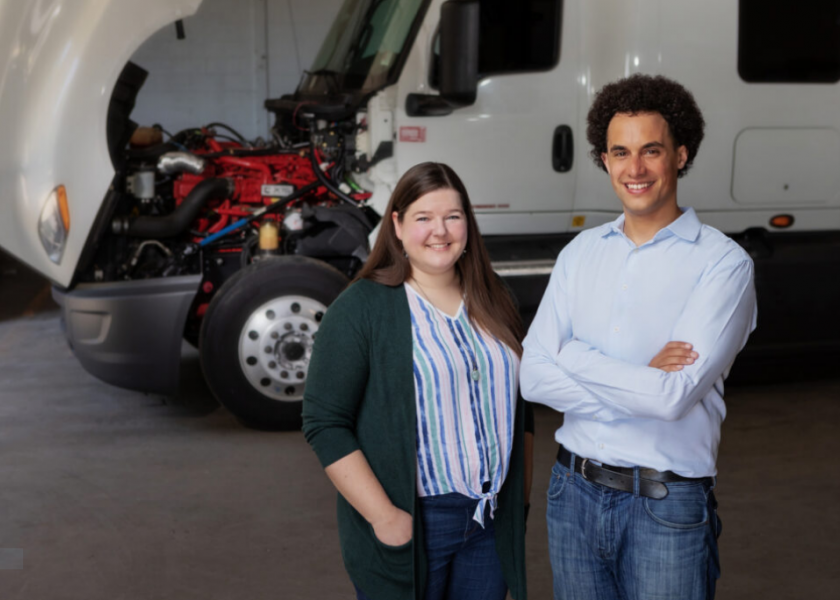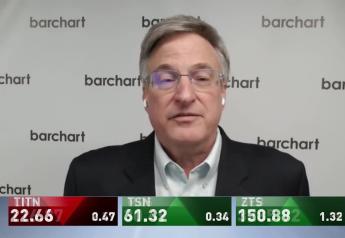E98-Fueled Diesel Engines set to Run in the Field and on the Road

Move over diesel – prepare to make way in the field and on the road for more ethanol-fueled farm equipment and over-the-road trucks.
Thanks to work by ClearFlame Engine Technologies, the modifications the company is making to diesel engines will make them fuel agnostic, according to BJ Johnson, co-founder and CEO of the Illinois-based business.
“They will perform like a diesel engine and offer all its practical values but freed from the need for petroleum diesel fuel,” he says.
Bright Future for E98
The company’s plan is to go to market with ethanol-powered diesel engines that specifically use E98. That strategy will combine the performance benefits of the diesel engine design with the lower fuel costs and lower emissions.
“I mean emissions in the broadest sense – not just CO2 but also things like smut and smog, which really impact air quality as well,” Johnson says.
The engine modifications will be available with an OEM or as a retrofit.
The company has successfully run a heavy-duty diesel engine truck with100% renewable plant-based fuels over the road since last fall.
“It's doing great – doing everything that you would expect out of a diesel truck,” Johnson says. “We're running it through our own internal tests right now, with professional drivers, to make sure we get to the goal of them not being able to tell they're not driving a diesel.”
Agriculture Trucks Equipped This Summer
Once those tests are completed, Johnson says the company plans to equip some trucking fleets in the agriculture sector this June or July to run on ethanol and will test their performance.
“From there, we’re scaling up towards some of the larger commercial, non-agriculture fleets in the late summer,” he adds.
At the same time, Johnson says the company is working with the U.S. Environmental Protection Agency to demonstrate that the modified diesel engines perform as indicated and are safe. That process has to be completed before actual sales occur and won’t be done until late 2023.
“But that doesn't actually stop us from getting the technology on the road, proving that it works, proving that people want it and generating orders,” he says. “So, we're building up to our first four or so trucks right now.”
In addition, he says ClearFlame is working with John Deere to put agricultural equipment with modified engines in the field before the end of 2022 for testing and evaluation.
4 Questions And Answers
During a discussion on AgriTalk with host Chip Flory, Johnson addressed questions he anticipates farmers might have. Here are four:
Question: Is the power production from the ethanol-powered engine on par with what you get from diesel?
Answer: “Yes, the performance is not different between diesel and ethanol. There’s the same power output, same torque curves and same load acceptance. The ethanol-powered engine even sounds like a diesel engine. It just doesn’t use fossil fuel.”
Question: How price competitive is this modified engine compared to diesel?
Answer: “We're looking at a few different routes to bring this to market, doing this as an OEM product. It is the exact same assembly process that you would use for a regular diesel engine. You're still putting injectors into engine heads on the blocks. It's an ethanol-compliant injector instead of a diesel compliant one, so there’s a little different plumbing. To do it as an aftermarket retrofit, there is a labor cost, of course, to pull in the pistons, add some surface treatments, and put them back in. A Total Cost of Ownership (TCO) analysis was completed and published the end of April that answers a lot of the pricing type questions.” (See it at Independent Study Confirms Cost Savings & Emissions Advantages for Heavy-Duty Trucks Running ClearFlame’s Engine Modification Technology)
Question: Is the cost to run a modified truck or tractor on ethanol going to be competitive?
Answer: “This technology has been economically viable based on the economics we've seen the last five years or so. That is why we chose ethanol as a fuel. Not because it's clean – and it is clean, and that's great – but at the end of the day, economics is what drives adoption. And the fact that we can motivate adoption by saving people money, while also allowing them to move their goods sustainably and plant their crops sustainably, that's a win-win. So, the economics have to be there, and they absolutely are.”
Question: What is the range for a modified engine running on ethanol? Do you need a bigger fuel tank?
Answer: “Ethanol has a lower energy density, so you do have to use more of it to go the same distance. The good news is the fuel is cheap enough that even if your miles per gallon are going down, which they will, your dollars per mile are also going down, which is what you really care about. The question then is do you need a slightly larger tank? Or, do you refuel slightly more often, because we're talking about a standard liquid that just sits in the glass. Both of those are really negligible changes in behavior, and some fleets will choose one option and some will choose the other. There’s not a long refuel time, because you're still just pumping product into a tank, which is a huge advantage.”
EPA Officially Announces the Sale of Year-Round E15
Secy. Vilsack: E15 Won’t Inflate Food Prices, 'There’s Plenty of Corn Here'
Could Airlines Soon Be Fueled By Biofuels?
Climate-Friendly Rice Provides Missouri Farmer a Price Premium, New Carbon Credit Income







